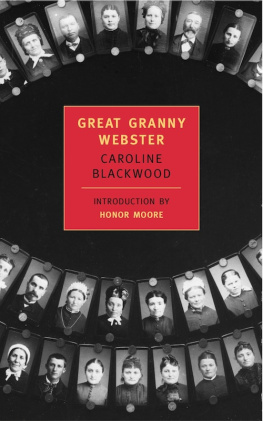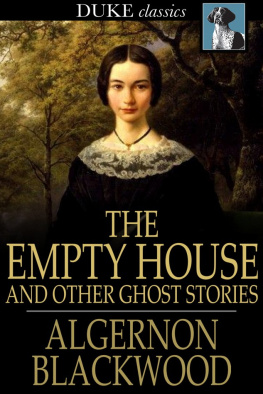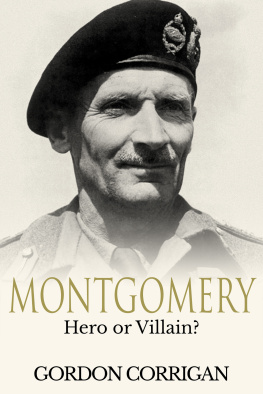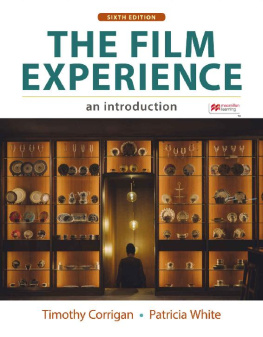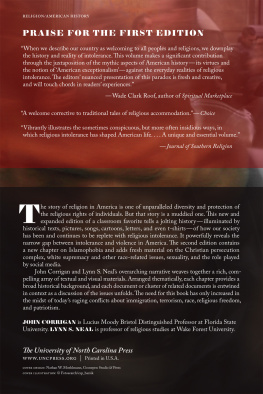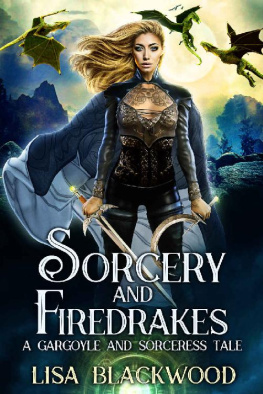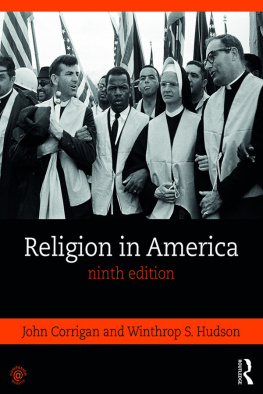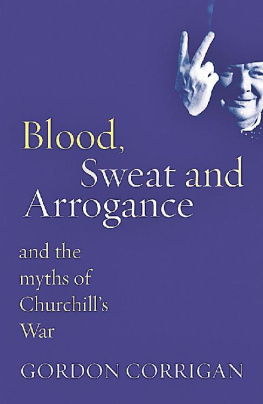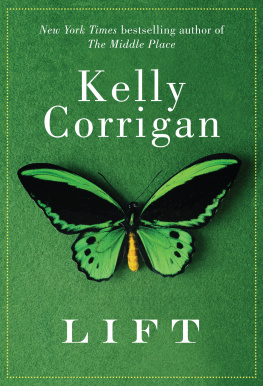CAROLINE BLACKWOOD (19311996) was born into a rich Anglo-Irish aristocratic family. She rebelled against her background at an early age and led a hectic and bohemian life, which included marriages to the painter Lucian Freud, the pianist and composer Israel Citkowitz, and the poet Robert Lowell. In the 1970s Blackwood began to write. Among her books are several novels, including Great Granny Webster and Corrigan (both available as NYRB Classics); On the Perimeter, an account of the womens anti-nuclear protest at Greenham Common; and The Last of the Duchess, about the old age of the Duchess of Windsor.
HONOR MOOREs most recent books are Darling (poems), which was a finalist for the James Laughlin Award, and The White Blackbird: A Life of the Painter Margarett Sargent by her Granddaughter, a New York Times Notable Book of the Year. Her play Mourning Pictures was produced on Broadway, and its British production was broadcast on BBC radio. She teaches in the graduate writing programs at New School University and Columbia.
GREAT GRANNY WEBSTER
CAROLINE BLACKWOOD
Introduction by
HONOR MOORE
NEW YORK REVIEW BOOKS

New York
CONTENTS
INTRODUCTION
IN HER FIRST book, For All That I Found There, Caroline Blackwood published a short memoir that predicts the writer she will become. During the war, Blackwood had been sent for safety to a boys school, and the central character of her memoir is the school bully, gingery-haired, near-albino, with a snout-like nose. Piggy is about the interplay of sex and power, something Blackwood, a great beauty, knew about. By the time she wrote the story in her forties, she was an old hand at navigating the minefields her allure for men had set, having served as muse to Lucian Freud, whom she married and who painted her, and Walker Evans, who took spectacular photographs of her. Her turn from journalism to literary prose had followed her marriage, in 1972, to the poet Robert Lowell, and the inspiration of his life studies can be felt in hers.
Freakishly over-weight, Piggy McDougal holds sway over prepubescent Caroline and her male classmates by violence and intimidation, and so, when he takes her out to a rhododendron grove and directs her to remove her clothes, she does it. The little girl is mortified and humiliated, but the adult narrator turns boy to pig as coolly as Circe:
The nervous blink of his white eyelashes became far worse than usual. His mouth was slack and trembly. He kept fidgeting with his hands....
Have you had the curse yet? McDougals porcine face, usually so florid, was ashen ... Instinctively I sensed that I must not tell him that I had never had it....
When I refused to answer, my silence seemed to chill him, for I noticed that his teeth were chattering like those of a winter swimmer....
Blackwood followed For All That I Found There, a collection of fiction and nonfiction, with a short novel in which she engages what will become one of her central themes, the turbulent, involuntary ties between women. In The Stepdaughter, an enraged, self-absorbed woman is saddled with the sullen, cake-addicted daughter of the philandering husband who has abandoned her. In Great Granny Webster, Blackwood treats a related subject, once again with the cauterizing diction that distinguished Piggy. Here she takes a writers dive into the material with which, as a raconteur, whiskey in hand, she famously enchanted and mesmerized her friends.
Blackwood, like Robert Lowell, belonged to a tradition of troubled artist aristocrats whose bloodlines coursed the veins of imperial viceroys, Harvard presidents, Anglican bishops, closeted aesthetes, and vengeful daughters passed over by primogeniture. Rising incendiary from august genealogies and privileged with huge dark houses, unfettered inheritances, or boundless land holdings, these descendants, before burning out in a harsh glee of liberation, may mark the crawl of historytheir addiction or madness outdone in its display by their art. Blackwood counted among her ancestors Richard Brinsley Sheridan, the Restoration dramatist, whose drink and debt induced a plummet from affluence but not from the firmament of English playwrights.
Drink was leagues ahead when Blackwood emerged from the motherhood of four daughters, a youth of beauty in Hollywood, New York, and London, and a short career as a magazine journalist to become a writer to contend with. Seriousness would have been hard enough for such a woman to achieve without the early loss of her father and a mother like Maureen, Marchioness of Dufferin and Ava, in her youth one of the Golden Guinness Girls. The marchioness, neglectful and critical of her children, had disapproved of her daughters marriages to Freud and the composer Israel Citkowitz, but when Caroline married Robert Lowell, she foraged the Guinness genealogy and found Lowells: Do ask Cal, she wrote her daughter, if we were already his kinsmen.
Blackwood and Lowell had met for years in New York literary circles, but the coup de foudre, between the married American poet at the height of his fame and the married Anglo-Irish noblewoman, took place in London, and, after eighteen months of hectic courtship, the birth of their son, and sad, hurried divorces, they married. If Lowell, hobbled by manic-depressive illness, considered himself reborn as a poet when he fell in love with Blackwood, the alliance transformed her from an occasional writer to a committed one. It is sweet to imagine them settled in her house in the English countryside, Lowell at work on The Dolphin for which Caroline was his muse, and Caroline, writing across the room, her entranced husband sneaking an occasional look. Lowell later described the scene:
Winterlong
And through the fleeting, cool, Kentish summer
obstinately scowling
to focus your hypnotic, farsighted eyes
on a childs pale blue paper exam book
two dozens ... carpeting an acre of floor,
while a single paragraph in your large,
looping, legible hand exhausted a whole book ...
[from Runaway, in Day by Day]
The work exhausting blue books was Great Granny Webster, a compressed virtuosic gothic whose young woman narrator seeks to unravel the curse of her female inheritance as a way of encountering her father, who died fighting in the Burma campaign when she was nine. The Scottish great- grandmother of the title, like Blackwoods own paternal great-grandmother, is the mother of a severely disturbed daughter (based on Blackwoods grandmother), who has a psychotic break and tries to murder her grandson, the narrators father, at his christening. Great Granny Webster is only 108 pages long, but literary London greeted it as the coming of age of a significant voice. A finalist for the Booker Prize, it lost to Paul Scotts Staying On, the decisive vote cast by Philip Larkin, who reportedly insisted that a tale so autobiographical could not stand as fiction.
It seems strange now that the issue of verisimilitude could keep a book from a prize, but the forces of literary innovation move slowly. Blackwood, perhaps defensively, once remarked that Great Granny Webster was probably too true, but twenty-five years later, its truthfulness can be likened to the accuracy of true north. The book is a distilled work of literary imagination that anticipates not contemporary American memoir, in which a readers interest is often summoned merely by a writers striptease of dysfunction, but the slim, intense novels of our time that transmute from actual people and places narratives so true to their tellers they cannot seem other than fiction to anyone else.

